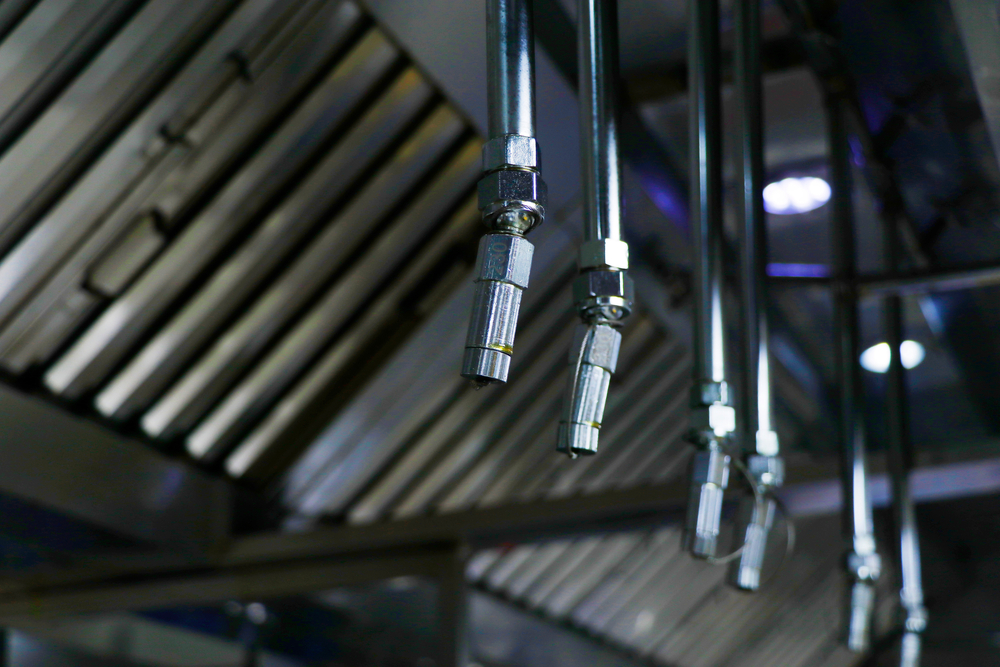

Commercial kitchens are bustling hubs of activity, where delicious meals are prepared and served to hungry customers. However, they are also high-risk environments when it comes to fire hazards. According to the National Fire Protection Association (NFPA), cooking equipment is the leading cause of restaurant fires. This is why fire suppression systems are crucial for ensuring the safety of staff, customers, and the premises. In this blog, we will discuss the importance of fire suppression systems in commercial kitchens and how they work to prevent disasters.
Understanding How Commercial Kitchen Fire Suppression Systems Work
Commercial kitchen fire suppression systems are specifically designed to suppress fires that originate from cooking equipment, such as grills, fryers, and stovetops. These systems use a combination of wet chemicals that are dispersed onto the flames to extinguish them quickly. The primary components of a fire suppression system include a detection mechanism, a control panel, a fire extinguishing agent, and distribution nozzles located above the cooking appliances.
When a fire is detected, the system’s detection mechanism sends a signal to the control panel, which then activates the release of the fire extinguishing agent through the distribution nozzles. The wet chemicals are designed to quickly smother the flames and prevent the fire from spreading. This rapid response is crucial in a commercial kitchen setting, where fires can escalate rapidly and pose a significant threat to the safety of the staff and patrons.
The Importance of NFPA Standards for Kitchen Fire Suppression Systems
The NFPA sets stringent standards for the design, installation, inspection, and maintenance of fire suppression systems in commercial kitchens. The NFPA 96 standard specifically addresses the installation and operation of fire suppression systems in commercial cooking operations. Compliance with these standards is essential to ensure the effectiveness and reliability of the fire suppression system in the event of a fire emergency.
It is crucial for restaurant owners and kitchen managers to work with certified professionals to design and install a fire suppression system that meets NFPA standards. Regular inspections and maintenance checks are also necessary to ensure that the system is functioning correctly and will provide effective fire protection when needed. Failure to comply with NFPA standards can result in fines, penalties, and, most importantly, the increased risk of fire-related incidents in your kitchen.
Protecting Your Kitchen and Your Business
Investing in a commercial kitchen fire suppression system is not just a legal requirement; it is a vital safety measure to protect your staff, customers, and property. Kitchen fires can result in catastrophic damage, injuries, and even fatalities if not promptly controlled. With a reliable fire suppression system in place, you can have peace of mind knowing that your kitchen is equipped to handle fire emergencies effectively.
Summary
The importance of fire suppression systems in commercial kitchens cannot be overstated. By understanding how these systems work and adhering to NFPA standards, restaurant owners and kitchen managers can create a safe working environment for their staff and ensure the continued success of their business. Remember, prevention is key when it comes to kitchen disasters, and a well-maintained fire suppression system is an essential tool in preventing and controlling fires in your kitchen.
Need a Fire Protection Company in Dalton, GA?
Carpet Capital Fire Protection, Inc. is your fire protection specialist in Dalton and the surrounding areas in Northern Georgia. With over 40 years of experience, we always go above and beyond our customers’ requests and expectations in order to ensure all of their fire protection needs. The founder of Carpet Capital Fire Protection Inc. wanted to create a fire protection company in the area that guaranteed a better quality of work, better prices, and a better overall customer relationship. We will help to ensure that your property meets local or state fire codes, insurance fire codes, and municipality-related fire codes. Contact us today to learn more about what we can do for you!
